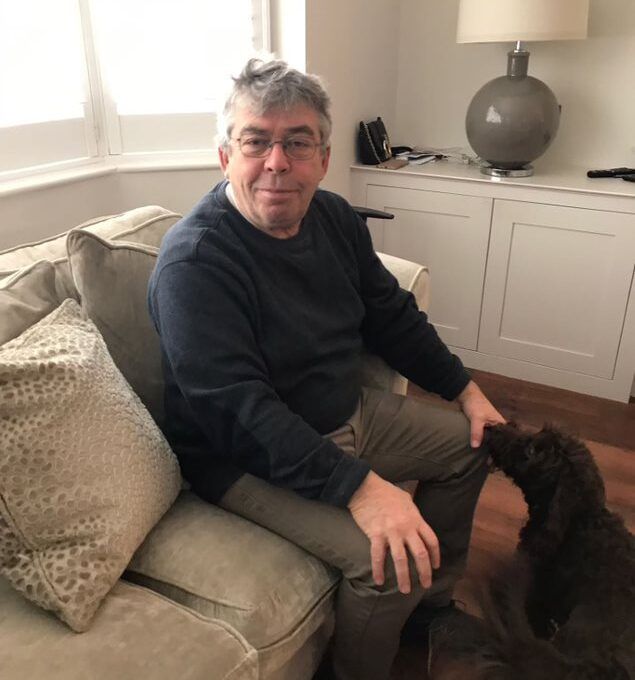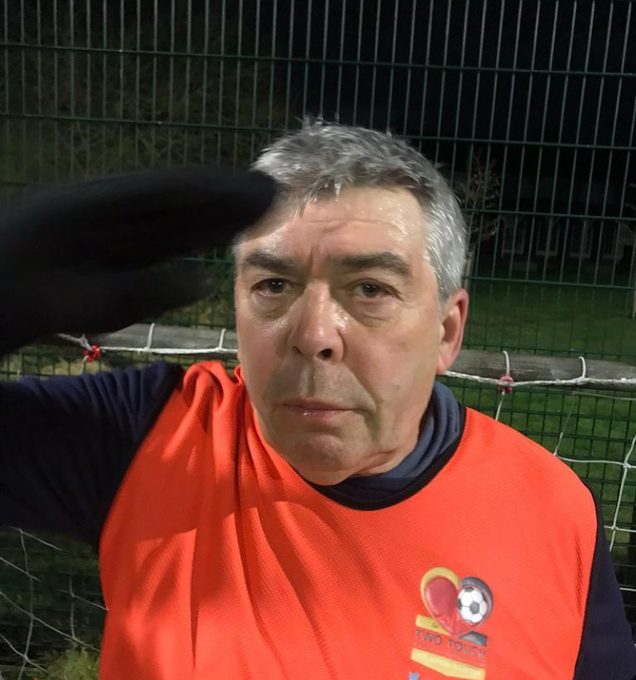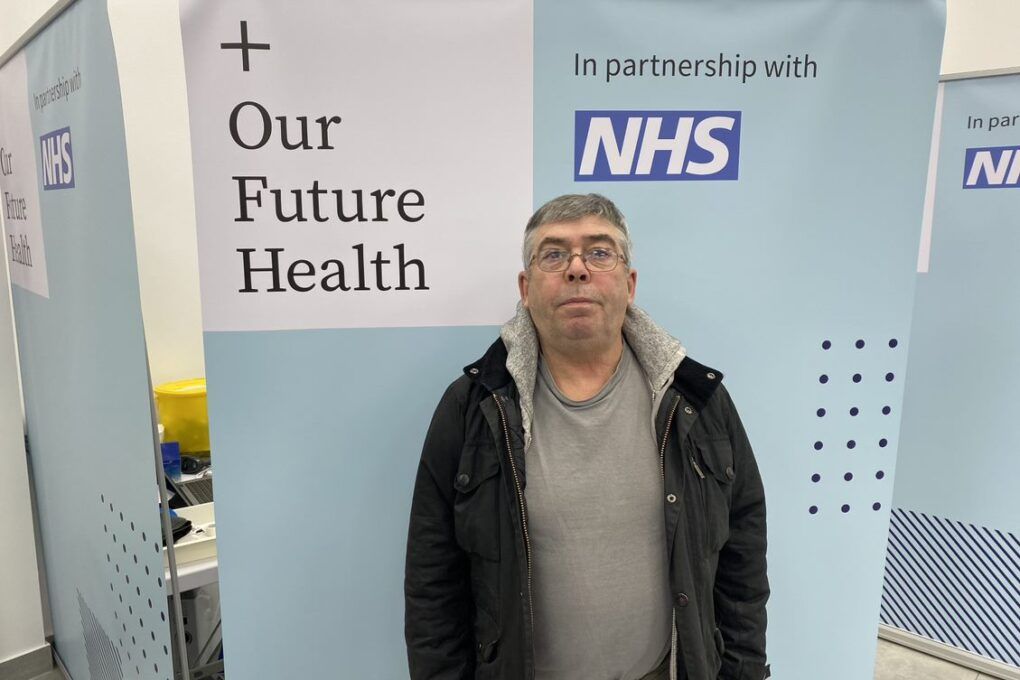‘After my cardiac arrest, I joined Our Future Health to help other people like me’

Being a London black cab driver can take its toll. The long hours. The constant sitting. The stress of urban gridlock and demanding passengers. The unavoidable fumes.
Phil Jacobs sat behind the wheel of a black cab for more than 38 years. Then, in 2016, he suffered a cardiac arrest following a heart attack while at home.
“I considered myself healthy,” he says. “I was a member of a gym. I could swim a mile and I ran three miles on the running machine every week. In fact, three days before I had the heart attack
I was on the running machine.”
Like most heart attacks, it came out of nowhere with no warning signs. Phil, who was 61 at the time and had no history of heart disease in his family, spent most of his time driving his cab around the streets of London. He had undergone a health check at his GP less than a year before. “My blood pressure was high, but my cholesterol was 5.5, which is only slightly raised,” he says.
The day it happened, Phil realised something was wrong when what he thought was indigestion didn’t abate. “I had chest pain, which I thought was heartburn. I took indigestion tablets, but after three hours it hadn’t gone away. I looked in the mirror and could see I was sweating, so I googled ‘sweaty, chest pain’ and the results said, ‘Dial 999.’”
His niece took him to Whipps Cross hospital, where staff waved him straight through. “While I was there, I had a cardiac arrest. They gave me one shot with the defibrillator which brought me round, then took me in an ambulance straight to St Bart’s where I had a stent fitted. Three days later I was back home.”
In the right place
People often assume that a heart attack and a cardiac arrest are the same thing, but this is not the case. According to the British Heart Foundation, a heart attack is caused by a blockage in a coronary artery. The heart usually continues to beat, but if the block is not fixed, the heart will lose blood supply and fail to operate properly.
A cardiac arrest is caused by electrical problems with the heartbeat, and it occurs when the heart beats too fast, too slow or stops altogether, causing it to affect the blood pumping around the body. Often, a heart attack leads to a cardiac arrest, because the heart develops a dangerous rhythm during the attack.
Heart attacks and cardiac arrests are both emergency situations that require immediate medical assistance.
Most people who suffer a cardiac arrest aren’t as lucky as Phil, who looked up his symptoms, realised he was having a heart attack, and got to hospital before he went into cardiac arrest. Often a cardiac arrest comes on too quickly to get to hospital. According to the British Heart Foundation, there are 30,000 cardiac arrests outside of hospitals a year in the UK. Due to the lack of CPR-trained passers-by or access to defibrillators, the chances of surviving are 1 in 10.
In terms of what caused Phil’s cardiac arrest, he was told it was a blockage in one of his blood vessels. “There was no blood getting through. Afterwards, they did an MRI and more tests, and a year later I was given the all-clear.” What Phil suffered is one of the biggest killers in the UK – in 2021, ischaemic heart disease (caused by narrowed arteries) was the third highest cause of death, with 38,683 dying from it.
For Phil, his heart attack was life-changing in more ways than one. “When I came out of hospital, I was worried I’d have another heart attack if I lifted anything. I took everything really easy. And then I met a nurse at Whipps Cross called Brian Coleman who told me he ran a rehab course where people who’ve had heart problems can do gentle exercise.”
Building up the cardio

At first, the exercises involved simply walking around a room stretching your arms. “After a month Brian said, ‘If you’d like, you can come to my circuit-training class on Mondays.’ When I turned up, there were 30 or 40 people there, all of whom had heart problems.”
Phil made such quick process that after just two months of circuits he was invited to play five-a-side football with Brian’s football rehab group, ‘TwoTouchAFC’.
Five years later, he still plays two to three times a week, now with ‘The Dodgy Tickers’ (@DodgyTickers) – one ‘three-touch’ game, one walking game and one running game. “There are some really fit guys there, in their 70s,” says Phil. He’s made a close group of around 30 friends through the group, and also joins Brian’s cycling group ride a couple of times a month.
Now, aged 66, he feels completely fine and rarely worries about his heart. He retired as a black cab driver following his cardiac arrest, as he believes the job was a major contributing factor to his heart disease.
“You’re sitting down 10 to 12 hours a day, exposed to all the fumes,” he says. “The old taxis even had holes in the floor – if you were next to a bus you could smell the fumes coming through the holes. It can’t have done me any good.”
As well as being a former smoker, he also believes the stress of the job played a part. “You’ve got people in the back putting pressure on you to get to their destination quickly, road closures and route problems – it was very stressful. A lot of black cab drivers end up having heart attacks.” A study of taxi drivers in the US found that they had a high prevalence of cardiovascular risk due to higher levels of smoking, obesity, physical inactivity and lower intake of healthy food.

He joined Our Future Health in January 2023, donating his blood sample at the Stratford clinic. “After my cardiac arrest, I’m hoping that what’s happened to me might be used to help other people,” he says. “Keeping an eye on my blood pressure and cholesterol is important, which is part of the reason why I joined Our Future Health.
“I look around at my football team and think if this was 20 years ago, we’d all be dead,” he adds. “I’m going to recommend to them that they join Our Future Health. Without research, we’d all be in trouble. Hopefully people will read this, and think, ‘Maybe I should get my blood pressure and cholesterol checked.’”

Let’s prevent disease together
By volunteering for Our Future Health, you can help health researchers discover new ways to prevent, detect and treat common conditions such as diabetes, cancer, heart disease, stroke and Alzheimer’s.